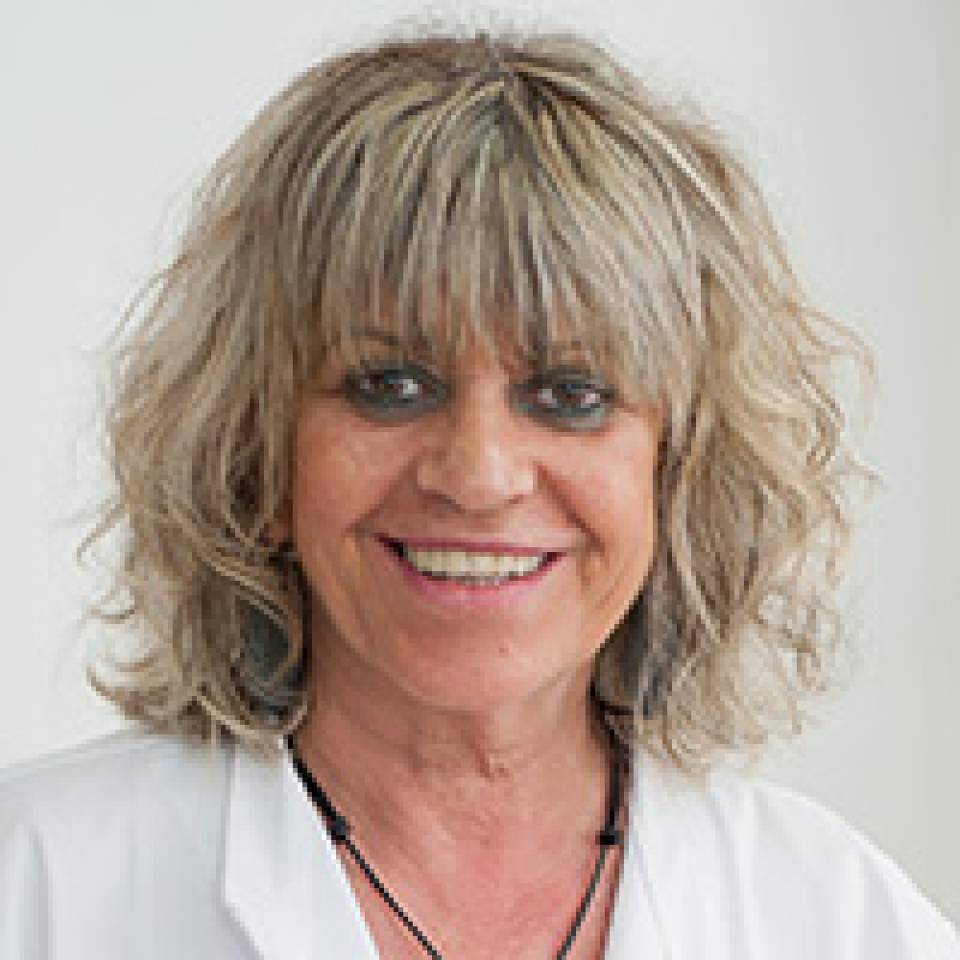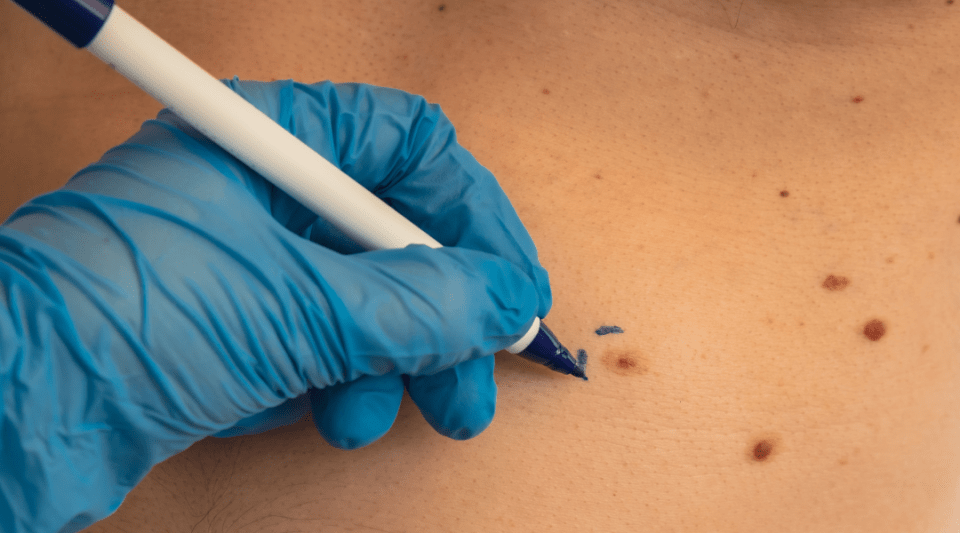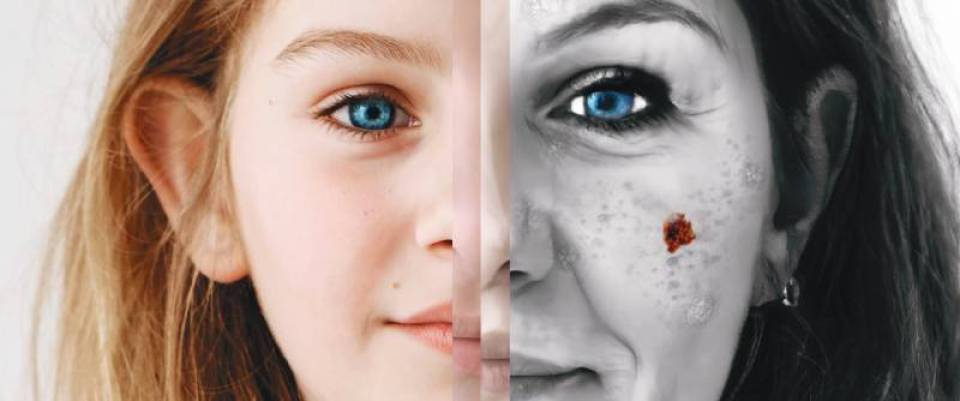17 December 2025
- What is it?
- Risk factors
- Symptoms of Skin Cancer
- Diagnosis
- Treatment
- Disease evolution
- Living with the disease
- Research lines
- FAQ
- Prevention
-
Equipo y estructura
Living with Skin Cancer
After finishing the treatment, the patient must attend some routine check-ups in order to detect any potential recurrences, identify new skin tumours (both melanoma and non-melanoma cancers), assess and treat any treatment-related complications and receive psychological support and information.
Recommendations for reducing the risk of recurrence after finishing treatment:

Avoid exposure to the sun without sunscreen. Sunscreen should be applied along with other straightforward measures, such as staying out of the sun between 11 a.m. and 3 p.m., or covering yourself with clothes, a hat and sunglasses.

Perform regular self-examinations of your skin and lymph nodes throughout your lifetime to monitor for any suspicious moles or the appearance of melanoma.

Avoid artificial ultraviolet light.

Avoid sunburns.
How to identify a tumour?
When a lesion on the skin changes colour, shape or size, or if it has irregular colours or bleeds, then it is vitally important that you visit your doctor.

Asymmetrical shape. One hlaf differs from the other.

Border. Irregular, wavy o poorly defined borders.

Colour. Variations between areas; coffee or black shades, sometimes white, red or blue.

Diámetro. Mientras que los melanomas son, generalmente, más grandes de 6mm, cuando se diagnostican pueden ser más pequeños.

Evolution. A mole or skin lesion that appears different from any others you may have or which changes colour, shape or size.
How do I perform a skin self-examination?

Look at your face, especially on the nose, lips, mouth and ears, and also behind them.

Check the scalp and uses a comb to separate layered hair. For men with baldness, we must review the entire scalp.

Lift your arms to examine the inside of the arm and the armpit.

Look at the neck, chest and upper body.

Use a mirror to examine the nape and back.

Check the buttocks and the back of the legs. Finish by examining the soles of the feet and the spaces between all the fingers.
What happens if the cancer reappears?
When the cancer reappears it is known as recurrence or a relapse. A physical and radiological examination, complemented by a blood test, is carried out to assess whether a tumour has spread.
The test results will help the medical team decide which treatment option to follow.
Emotional support
Returning to a normal life when suffering from cancer is not easy for some people, and the sense of uncertainty and worry about certain issues, such as personal image, fatigue, sexual desire, work, emotions or lifestyle, are difficult to handle.
To this effect, it is vitally important to try and find support in people with whom you can share these concerns, whether they are family members, friends or your healthcare team. In some countries there are support groups formed by ex-patients, or telephone information lines, which offer advice and organise group workshops where you can discuss your situation with people who have experienced the same thing.
It is also important to inform your family members of their increased risk of developing a melanoma. Additionally, you should instruct them about regular skin self-exams and recommend they visit their doctor to detect and remove any suspicious moles as early as possible. Nevertheless, a genetic analysis is not required in this case.
How can I prevent skin cancer?

Sunscreen. Apply a generous layer of a broad spectrum (protection against ultraviolet A (UVA) and B (UVB) rays), water-resistant sunscreen with a sun protection factor (SPF) of 30 or more to all areas of exposed skin. Reapply the sunscreen approximately every two hours, even on cloudy days, and after swimming or sweating.

Protective clothing. Wear a long sleeve shirt, trousers, a wide brim hat and sunglasses whenever possible.

Seek out the shade. The sun’s rays are strongest between 11 a.m. and 3 p.m. If your shadow is smaller than you, then you should find the shade.

Take extra care when near water, snow and sand. These all reflect and intensify the sun’s harmful rays and increase the chances of being burnt.

Vitamin D. Incorporate vitamin D-rich foods into your diet or take vitamin supplements. Do not exposure yourself to the sun to produce vitamin D.

Avoid the use of tanning booths. Ultraviolet light from the sun and tanning booths can cause skin cancer and ageing. It is better to use a self-tanning product if you want tanned skin. Even so, you must still wear sunscreen.
Substantiated information by:


Published: 20 February 2018
Updated: 2 July 2025
Subscribe
Receive the latest updates related to this content.
(*) Mandatory fields
Thank you for subscribing!
If this is the first time you subscribe you will receive a confirmation email, check your inbox


